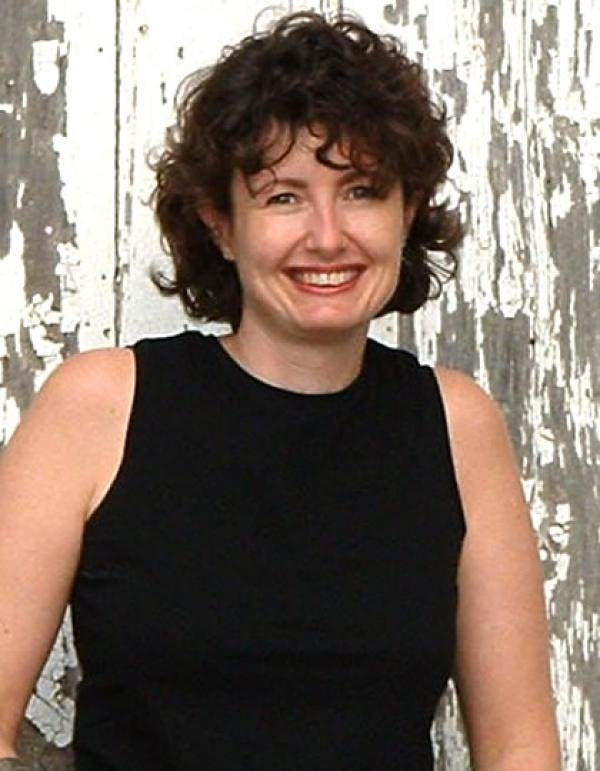Kelly Madigan-Erlandson

Photo by Helen Stringfellow
Bio
Kelly Madigan Erlandson is the author of Getting Sober: A Practical Guide to Making it Through the First 30 Days (McGraw-Hill, 2007). She has been a licensed alcohol and drug counselor in Nebraska since 1983. Awarded the Distinguished Artist Award in Literature from the Nebraska Arts Council in 2006, her poems and creative nonfiction have appeared in Prairie Schooner, Crazyhorse, The Massachusetts Review, Best New Poets 2007, Smartish Pace, Barrow Street, Minnetonka Review and 32 Poems. Her poetry has been featured by Garrison Keillor on his national radio broadcast, The Writer's Almanac. Her chapbook, Born in the House of Love, won the Main-Traveled Roads Award. In recent years, Erlandson has been a writer-in-residence at Jentel Artist Residency Program and KHN Center for the Arts.
Author's Statement
I am working in several genres and am excited about the time made available to me by this fellowship to focus on my writing. This is a turning point year in my life - my youngest daughter graduated from high school, my first book was published three months ago, and I am ready to settle down to the work ahead of me. I feel blessed to have the new infusion of confidence that the NEA award provides.
From the non-fiction story "A Hundred Seeds"
I remember, and don't remember, driving drunk. Once, when I was seventeen, I drank with a friend at a bar until it closed. We had fake ID's and our first paychecks from the Officer's Club on the Air Force Base, where we bussed tables for the big brass and smoked cigarettes in the break room. Flush with cash, we went to a bar in town, drank fast and kept ordering. By the time we left, my friend had decided I was too drunk to drive and took my keys away. She got in the driver's seat of my Buick Electra 225. Sober people might point out that she had been drinking side by side with me all night, but in the special hierarchy of drunken comrades, she was the better driver that night, and I gratefully got into the passenger seat.
Because those who get drunk together often share an absurd loyalty to one another, what she did next seems strange, even considering she was intoxicated. It still puzzles me, more than twenty years later. She drove the car to her house, said, "Good luck getting home, drive carefully," and slipped inside quietly, careful not to disturb her parents. She left the keys in the ignition and the engine idling.
A certain percentage of the population shares a trait involving the optic nerve that makes them susceptible to double vision. Those who have it, like myself, see double when they are extremely tired or very drunk. The others never do, no matter how intoxicated they might become. The double images can be resolved by closing one eye. By retreating into monovision, the superimposition of conflicting images is reduced to one view, and no depth perception. Under the influence, it seems like a fair trade off. I clambered over to sit behind the wheel, closed one eye and began the drive home.
Julie would not have heard the commotion in front of her hotel since she left a quarter of an hour earlier, turned the corner and began walking down the main road. Heat and light glanced off the throng of people that she walked with, each heading out for whatever their day would hold. Behind her, out of earshot, men yelled at the driver of the red truck as he revved the engine louder and louder. When the truck finally lurched forward, it tore through the chain that had been hastily strung up to stop its progress. The end of the chain swung up like a fist and crackled the windshield glass into a mosaic that must have separated his view into hundreds of separate images.
I have not learned the driver's name. The newspaper accounts tell it, and I could find it, but I'd rather not know. Certain lives contain an event so stark it becomes the tag line for that life, forever. The man who shot Reagan. The woman who drove her kids into the lake. Everything else they do or have done, the accumulation of small choices made every day that constitutes a life, is swept away in the gale of consequence. I know him as The Driver.
He wasn't alone in the truck. The friend sitting next to him was equally intoxicated. I don't know if they had been drinking all night or woke up and started early, but it doesn't matter. I've done both of those things myself, although drinking through until daylight was always unnerving to me. Light lengthened the distance between myself and my horizon, making the world seem less manageable and my own failings too visible. I liked it better when I passed out before sunrise.
"A Hundred Seeds" first appeared in Crazyhorse.

